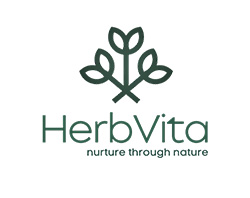India: The Hub of Genuine Herbs and Herbal Sourcing Excellence
Introduction:
India has long been recognized as a treasure trove of diverse flora, boasting a rich heritage of traditional medicine systems like Ayurveda and Unani. In recent times, the country has emerged as the go-to destination for sourcing genuine herbs. This article explores the factors that make India the most suitable hub for procuring authentic and high-quality medicinal herbs.
- Biodiversity and Ecological Variability: India’s vast and varied geography, ranging from the Himalayan mountains to coastal plains, provides an ideal environment for a diverse array of plant species. The country’s unique climate and soil conditions contribute to the growth of herbs with potent medicinal properties, making it a hotspot for biodiversity.
- Rich Traditional Knowledge Systems: India’s traditional medicine systems, particularly Ayurveda, have been instrumental in preserving and documenting the knowledge surrounding medicinal herbs. The wealth of information passed down through generations provides a foundation for sustainable harvesting, ensuring that sourcing practices align with traditional wisdom for optimal efficacy.
- Cultural Heritage and Sustainable Practices: The cultural reverence for nature and sustainable practices in India plays a crucial role in herb cultivation. Many farmers adhere to age-old, eco-friendly farming techniques, avoiding the excessive use of chemicals and pesticides. This commitment to sustainability not only preserves the environment but also ensures the purity and authenticity of the herbs.
- Expertise in Organic Farming: With an increasing global demand for organic products, India has positioned itself as a leader in organic farming. Many herb cultivators in the country prioritize organic and natural farming methods, minimizing the use of synthetic inputs. This commitment to organic practices enhances the quality and authenticity of the herbs sourced from India.
- Regulatory Standards and Certification: India has established robust regulatory frameworks and certification processes for the herbal industry. Government bodies like the Ministry of AYUSH (Ayurveda, Yoga & Naturopathy, Unani, Siddha, and Homoeopathy) enforce quality standards and good agricultural practices. This ensures that herbs sourced from India meet stringent quality criteria, providing assurance to international buyers.
- Traditional Healers and Ethnobotanical Knowledge: India’s diverse population includes numerous traditional healers and local communities with profound ethnobotanical knowledge. These healers often collaborate with herb cultivators, contributing valuable insights into the cultivation, harvesting, and processing of medicinal herbs. This collaboration fosters an environment where traditional knowledge and modern scientific practices intersect.
- Global Recognition and Export Competence: Over the years, India has earned a reputation as a reliable exporter of genuine herbs. The country’s proficiency in meeting international quality standards has positioned it as a preferred sourcing destination for herbal raw materials and extracts. India’s global recognition enhances the credibility of herbs sourced from the region.
Conclusion:
India’s suitability for sourcing genuine herbs stems from its rich biodiversity, traditional knowledge systems, commitment to sustainability, and adherence to stringent quality standards. As the demand for natural and traditional remedies continues to rise globally, India’s role as a hub of genuine herbs remains pivotal, contributing to the well-being of individuals worldwide and fostering the growth of the herbal industry.


